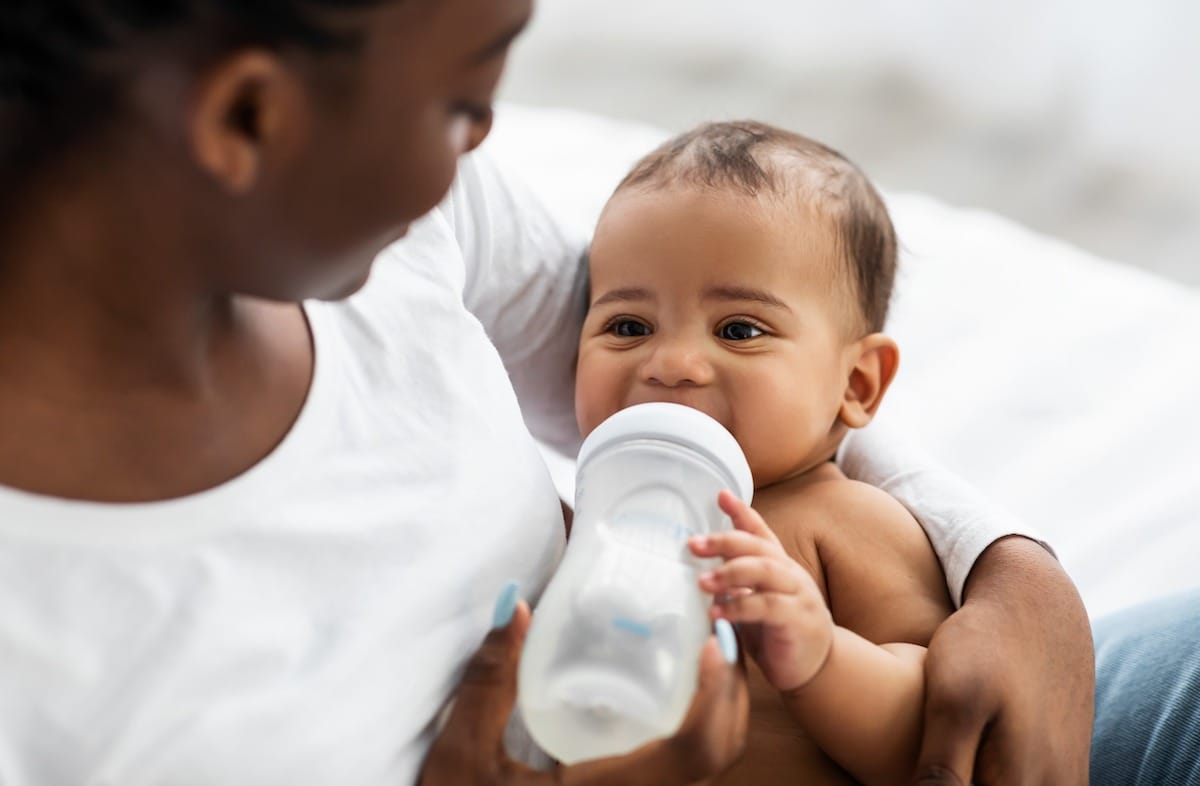It’s safe to say U.S. society has changed significantly over the last few decades. In that time, many women have transitioned from stay-at-home mothers to being the majority of today’s workforce. So both partners now work full time, while women keep their historical job — being a mother.
While working women are protected by law (e.g., Title VII of the Civil Rights Act and the Pregnancy Discrimination Act), these measures are not enough to enable them to build a healthy family in the modern times. Specifically, they’re protecting mothers’s employment but do not provide access to needed fertility and maternity care to birthing person or other people who’d like to build a family as a single parent or an LGBTQ+ individual. After all, women are not the only individuals capable of pregnancy.
The workplace has a lot of catching up to do when it comes to understanding the needs of pregnant employees and those who wish to build a family either through pregnancy or other options. Healthcare offerings, in particular, remain outdated, offering little guidance or help for non-traditional families or working mothers. It’s high time that employers assess gaps in their current family-building care offerings. Doing so is the first step toward creating a more inclusive work environment that reflects our modern society and values all families as equal.
The U.S. maternity care system is broken
Society is advancing, but maternity care is regressing. The maternal mortality rate has risen from 12 deaths per 100,000 live births in 1990 to 14 deaths per 100,000 live births in 2013. Perhaps surprisingly, the U.S. has the highest maternal mortality rate in the developed world, and 60% of those deaths are 100% preventable. Employers must understand the root cause of these distressing stats as they consider an inclusive paternal care solution.
One of the most glaring issues with U.S. maternity solutions is the vast disparity between standards of care. Black women are still four times more likely to die during childbirth than their white counterparts. The reasons behind this trend are nefarious because they’re deep-rooted, often concerning how women receive maternity education. Formative information like sex education from a young age can also impact a woman’s pregnancy and health in dire ways.
In other cases, the problem may lie in misguided medical advice. Many women in the U.S. are advised to have C-sections during birth — one in three, in fact. Other developed countries have a much lower occurrence of C-sections at just 19%.
These numbers paint a bleak portrait of the U.S. maternity care system. To combat the trend, it’s crucial parents receive access to robust information about all stages of pregnancy, from preconception and pre pregnancy to postpartum and newborn care. Ideally, they should receive this guidance from a trusted source like a doctor. Around-the-clock access to verified medical professionals aids the eventual process of childbirth, mentally and physically.
The healthcare system must standardize to protect all individuals involved in the maternity care process. Furthermore, women need access to quality and accessible (a.k.a. affordable) healthcare. Nearly 151 million receive healthcare coverage through their primary employer, which means the solution to this problem will likely fall to HR executives looking to improve their workforce’s quality of care and life. HR leaders must consider the benefits of a holistic healthcare package that prioritizes consistency and free access to information.
These offerings should be made available for women, yes. But they should also adapt to the needs of other family types.
Parental care solutions no longer fit the modern family
Modern healthcare, especially parental care, excludes a significant proportion of society: LGBTQ+ families, specifically those looking to grow their families. More than 60% of LGBTQ+ millennials and Gen Zers are considering having a first child or expanding their family. These families will often opt for non-traditional solutions to childbirth like surrogacy, IVF or adoption.
However, not all LGBTQ+ families will be able to afford these options. One cycle of IVF — the most expensive choice for childbirth — costs more than $30,000 on average out-of-pocket. And many families will have to pay that way because most healthcare plans neglect to provide diverse parental care options. Clearly, this is a problem. The lack of parental care provisions for non-traditional parents prohibits many U.S. adults from having the family they deserve.
Expensive parental care fees also impact single-family households, including individuals who want to have children alone. Currently, more than 20 million children in the U.S. live in single-parent households. This is a significant proportion of the general population.
Being prevented from pursuing parenthood can be severely taxing. LGBTQ+ and single employees may feel ostracized and isolated by their lack of choice. And no employee should choose between their livelihood and future child. Employers must reassess their version of “standard” maternity care today to ensure it provides for employees of all identities. But how?
How can modern healthcare evolve to meet parental needs?
The current maternity system considers parental healthcare in silos. Does the individual belong to a “traditional” family unit? Are they approaching childbirth the way it was done 100 years ago? If so, they may be covered. Otherwise, they’re likely paying immense fees or facing the dangers of an unregulated childbirth system.
The bottom line is that employers should prioritize inclusive care that respects parents and treats all families equally. Of course, that’s easier said than done. Employers may equate inclusive offerings with increased coverage and therefore increased costs. However, this doesn’t need to be the case. Employers should seek inventive fertility and parental care tools that prioritize cost transparency and inclusivity.
Doing so is paramount to creating an inclusive, productive work environment. And more importantly, it’s the right thing to do — for our workplace, friends and family.

Jeni Mayorskaya
Jeni Mayorskaya is the founder and CEO of Stork Club, a next-generation benefits provider that helps enterprises attract diverse top talent, drive better clinical outcomes and reduce their largest healthcare cost: maternity care. Stork Club has raised over $32M and is backed by leading healthcare investors, including General Catalyst, Bowery Capital and Slow Ventures. Before founding Stork Club, Jeni co-founded Bookmate, an award-winning cross-platform e-library, and served in several strategic marketing and consulting roles. Jeni brings more than 15 years of strategic leadership experience to the Stork Club team and is inspired by her personal connection to the cause: early in her career, she was diagnosed with reproductive health disorders that carried a risk of infertility. After hearing this same story from hundreds of other women, Jeni started Stork Club with the mission to enable people to take control of their reproductive health and be empowered to build a family on their own terms.







